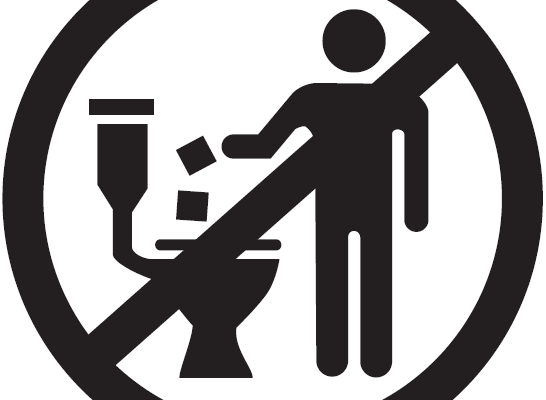Is male sanitary disposal the future in our public toilets?
It’s now the norm to walk into any female washroom in the UK and find the well-known and much appreciated sanitary bin, providing a method of discreet disposal when it matters most. Not only offering a suitable solution for the disposal of feminine products, as first thought by many, but sanitary bins are equally suited for the disposal of products that cannot be easily flushed. In contrast, male washrooms have been left behind when it comes to providing additional disposal options in cubicles. Failing to provide suitable sanitary disposal units in male washrooms, leads to the likes of wet wipes and other sanitary materials used by the males of today, being flushed and causing severe blockages.
A recent article published in The Guardian features London’s Local Government call to see appropriate sanitary bins becoming the norm in male washrooms across Greater London. With little to no alternative disposal options for wet wipes and other materials in the male washroom, the London Assembly is focusing its efforts on raising awareness of the damage caused by wet wipes and other materials. Not suitable for flushing, these products play a large part in the formation blockages in London’s sewage systems.
According to statistics published by The Guardian, the use of wet wipes has greatly increased over the last 5 years with approximately 11 billion used yearly, and many people are unaware that they are not suitable to be flushed. Moreover, the sales of un-flushable incontinence products used by both men and women have increased by 50%, reaching more than 1 billion a year. These staggering figures highlight the increased demand for such products, and as a result, require modern washrooms to adapt to ensure adequate disposal units are available in all washrooms, male and female. However, with most male public toilets in restaurants, bars and, offices failing to offer similar sanitary disposal units, as provided in female washrooms, men have very little option but to flush items such as wet wipes and even kitchen roll.
In the city of London, sewer blockages have become increasingly common, with the term ‘fatberg’ making the headlines and becoming all too familiar for the UK capital's population. Failing to understand the environmental impact of flushing the likes of wet wipes and other materials, these blockages and fatbergs have become an increasing problem for the city’s sewage systems.
While flushing wet wipes may not bring about much thought by users, it is only by taking a closer look at London’s enormous fatbergs, that we can begin to understand their impact. It is the plastic contained in wet wipes that cannot be broken down and consequently clings to the sewage pipes. When mixed with the fat and grease poured down the sinks of households and restaurants, these fatbergs are created clogging up London’s sewage systems.
Now growing to such enormous sizes in London’s sewage system, the London Assembly is calling to educate the city’s population about what should and shouldn’t be flushed down toilets. Simply put, toilet paper is the only suitable product for flushing as it can be easily broken down, while the same can’t be said for wet wipes and other sanitary products/materials containing plastics.
To raise awareness and make washroom users more mindful of their environmental impact when flushing, the London Assembly calls for an alternative and convenient disposal solution to become a common feature in the male washroom.
Enter the sanitary bin into the male washroom! To find out more about Unicorn Hygienics wide range of sanitary disposal products and services, click here!





